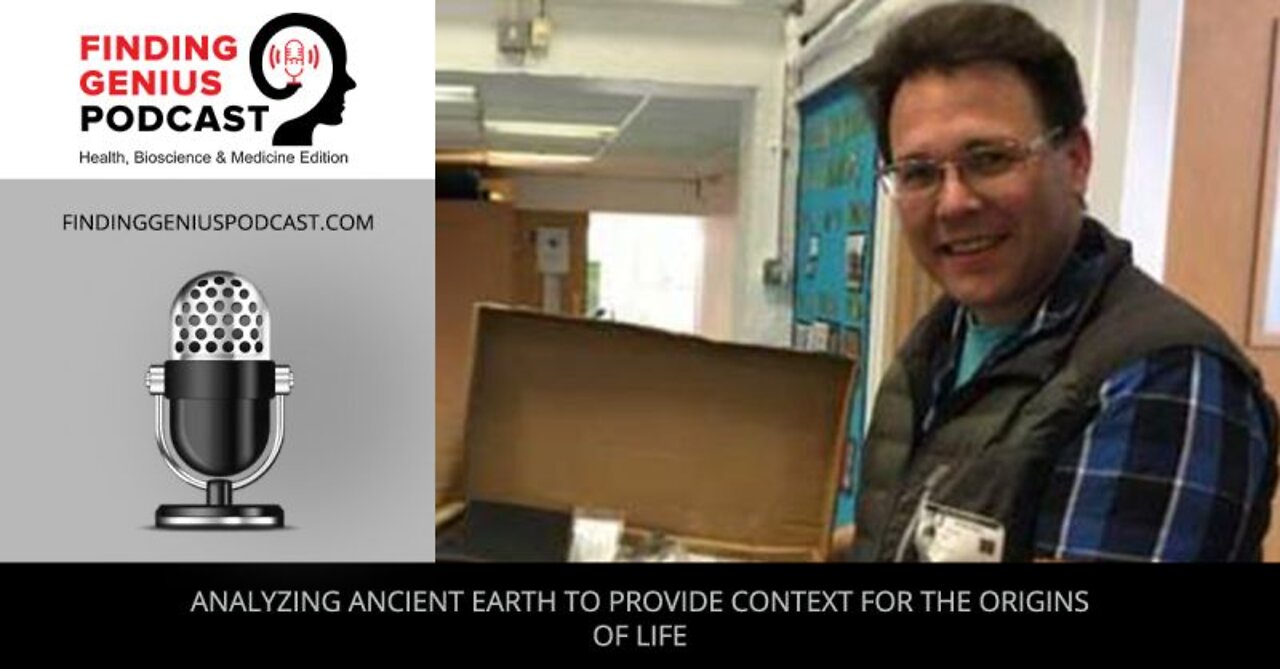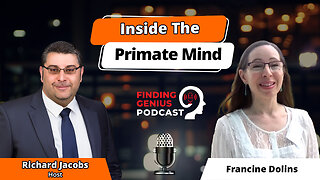Premium Only Content

Analyzing Ancient Earth To Provide Context For The Origins Of Life
Please Support The Channel by clicking here:
▀▀▀▀▀▀▀▀▀▀▀▀▀▀
Buy Me A Coffee: https://bit.ly/3BmEInH
Support us on Patreon: https://bit.ly/3Lw7YvI
▀▀▀▀▀▀▀▀▀▀▀▀▀▀
Episode also available on Apple Podcasts: apple.co/30PvU9C
Checkout FGP Website: https://www.findinggeniuspodcast.com/
SUBSCRIBE & REVIEW our Podcast on iTunes: https://apple.co/2L6tN88
Follow us on:
Facebook: https://web.facebook.com/futuretechpodcast/
Twitter: https://twitter.com/finding_genius
Instagram: https://www.instagram.com/findinggeniuspodcast/
LinkedIn: https://www.linkedin.com/company/finding-genius-podcast/
Timestamps:
0:00 Ad Introduction
0:50 FGP Introduction
2:26 Guest introduction
2:41 Background history
3:23 what have you discovered recently
12:15 Biofilm or a multicellular creature
21:17 the nature of physics
25:07 what was the dating method you use
29:40 find out about Dr Dominic Papineau
In this episode, we connect with Dr. Dominic Papineau, an Associate Professor in Geochemistry and Astrobiology at University College London. Dr. Papineau is a researcher that is interested in understanding the origin and evolution of life during Earth’s early history. He investigates these things so that he is able to further predict what might be found on other planets with both water and volcanism.
Join us as Dr. Papineau addresses topics such as:
1. How his background led him to his current research efforts.
2. What geological components can tell us about Earth’s early history.
3. What factors may have contributed to the evolution of consciousness on this planet.
4. Hypotheses about the nature of early Earth.
Offer:
This episode is sponsored by Organifi. To receive a 20% Off on your order, use the coupon code GENIUS at checkout. Go to https://www.organifishop.com/pages/genius/ to shop now!
What can ancient complex lifeforms tell us about the origins of our planet and others like it? Dr. Papineau gives us his understanding of this question and others like it in this riveting conversation!
You can find out more about Dr. Papineau and his work by visiting www.ucl.ac.uk.
-
 34:27
34:27
FGP
11 days agoInside The Primate Mind: What Animal Navigation Reveals About Human Cognition
153 -
 5:23
5:23
What If
3 years agoWhat If Ancient Life Escaped Earth?
70 -
 LIVE
LIVE
TheSaltyCracker
1 hour agoSALTcast 11-17-25
3,172 watching -
 1:17:45
1:17:45
DeVory Darkins
2 hours agoTrump drops STUNNING update as Chicago gets exposed for fraud
96.3K30 -
 LIVE
LIVE
Dr Disrespect
4 hours ago🔴LIVE - DR DISRESPECT - ARC RAIDERS - STELLA MONTIS QUESTS
2,527 watching -
 LIVE
LIVE
Jeff Ahern
46 minutes agoMonday Madness with Jeff Ahern
109 watching -
 1:21:49
1:21:49
Sean Unpaved
3 hours agoJa'Marr Chase LIED About Spitting On Jalen Ramsey! | UNPAVED
14.8K1 -
 2:17:54
2:17:54
Side Scrollers Podcast
4 hours agoAsmongold vs DSP + Metroid Prime 4 CONTROVERSY + Disney DROPS DEI? + More | Side Scrollers
24.6K4 -
 41:53
41:53
Steven Crowder
5 hours agoEnd All SNAP Benefits | Change My Mind
372K533 -
 LIVE
LIVE
StoneMountain64
2 hours agoBlack Ops 7 ZOMBIES 1st Playthrough of the BIGGEST MAP EVER
88 watching